
It is half-past four in the morning on Koror, the main island of Palau. The night is still pitch black and almost nobody is out and about on the streets. A few lonely figures shuffle over the sandy byways with their flip-flops in the still very sultry night. From afar, a faint “Kling-Klong” rings familiar in their ears, and the seemingly lost people are shown the way. The origin of the bizarre sounds is the dive center of Sam’s Tours, where dive tanks are being loaded into a boat, calling the characters like a beacon from a distance.
“Couldn’t the mosquitoes have at least been able to stay in bed?” asks American diver Jessica Hardy, who takes a break from loading her fins to swat a bloodsucker on her arm. All those present–other than the flying parasites–are voluntarily awake at this hour because they want to observe a natural even that is only rarely seen: the mating of the two-spot red snapper (Lutjanus bohar). Palau is not the only place where this event takes place, it goes without saying, but certainly one of very few where the spawning ground is mapped and is visited by a dive center with some regularity.
Sam’s Tours has been in business for over 25 years on Palau and has more than enough experience, equipment, and know-how to lead us on this rare opportunity. The divers prepare for a 60-minute ride to the dive site, where the spawning should take place. Unfortunately, there is still no coffee at this time, but as our boat pulls away, a refreshing breeze cools the humid night quickly, and we leave any fatigue behind, curious about the spectacle we soon hope to see.
This story is from the Issue 03 - 2019(116) edition of Scuba Diver.
Start your 7-day Magzter GOLD free trial to access thousands of curated premium stories, and 9,000+ magazines and newspapers.
Already a subscriber ? Sign In
This story is from the Issue 03 - 2019(116) edition of Scuba Diver.
Start your 7-day Magzter GOLD free trial to access thousands of curated premium stories, and 9,000+ magazines and newspapers.
Already a subscriber? Sign In
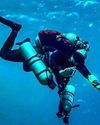
The Making Of A World Record-Breaking Diver
Descending more than 300 metres into the depths of the ocean may sound like a daunting prospect to even the most seasoned diver. But to one man, it was just another a challenge that he set for himself to see how far he was able to push the envelope.
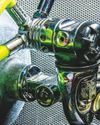
Risk Mitigation: Hose Failure
An unexpected outcome
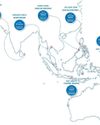
Top 10 Wrecks Of Asia-Pacific
We present a curated list of the top 10 most famous wrecks found in the Asia-Pacific region, listed in no particular order
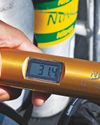
From The Medical Line: Diving After DCS
DAN medical information specaialists and researchers answer your dive medicine questions
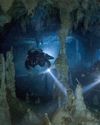
Cave Exploration: Beginning With The End In Mind
Building complex adventures on simple skills
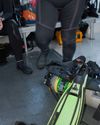
Dive Slate: Stay Safe On Board
When preparing for a dive, safety is at the top of the list – checking gear, learning potential site hazards and discussing procedures with your divemaster or buddy.

101 Tips On Becoming A Better Tek Diver
Technical diving takes divers beyond the typical recreational scuba diving limits, opening up many new and exciting possibilities.
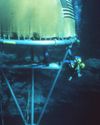
TECHNICAL DIVING TIMELINE (1660–1999)
It’s fair to say that the emergence of “technical diving” in the late 1980s, that is, the introduction of mixed gas technology, and later mixed gas rebreathers to the sport diving community, represented the culmination of hundreds of years of scientific discovery and technological development.

FLYING AFTER DIVING
From the Safety Stop

DIAGNOSING DECOMPRESSION ILLNESS
Incident Insight